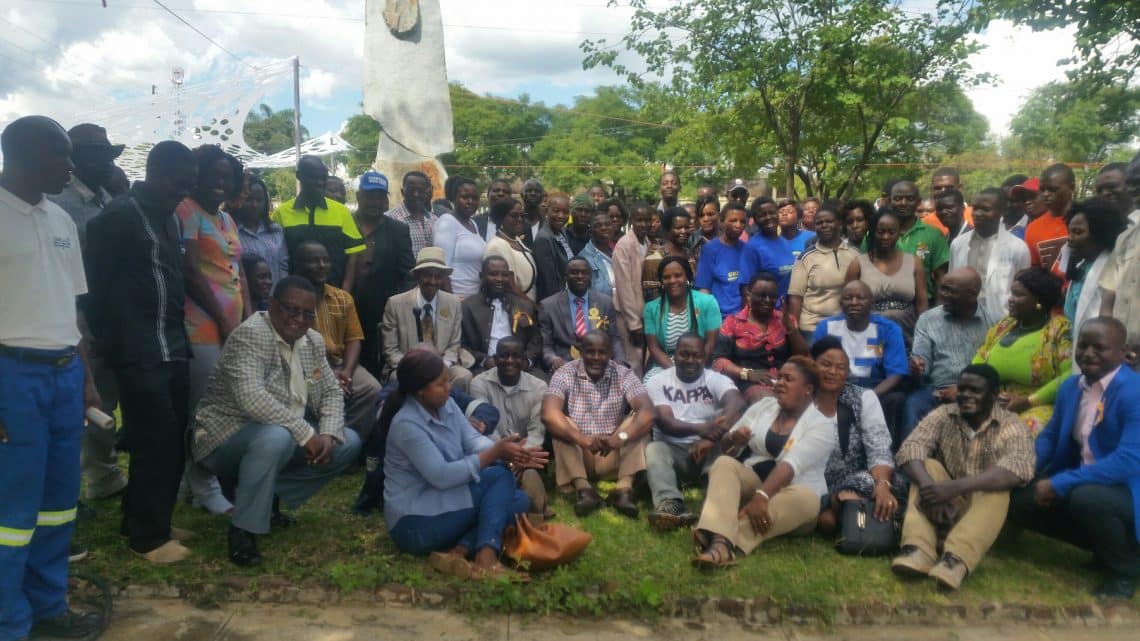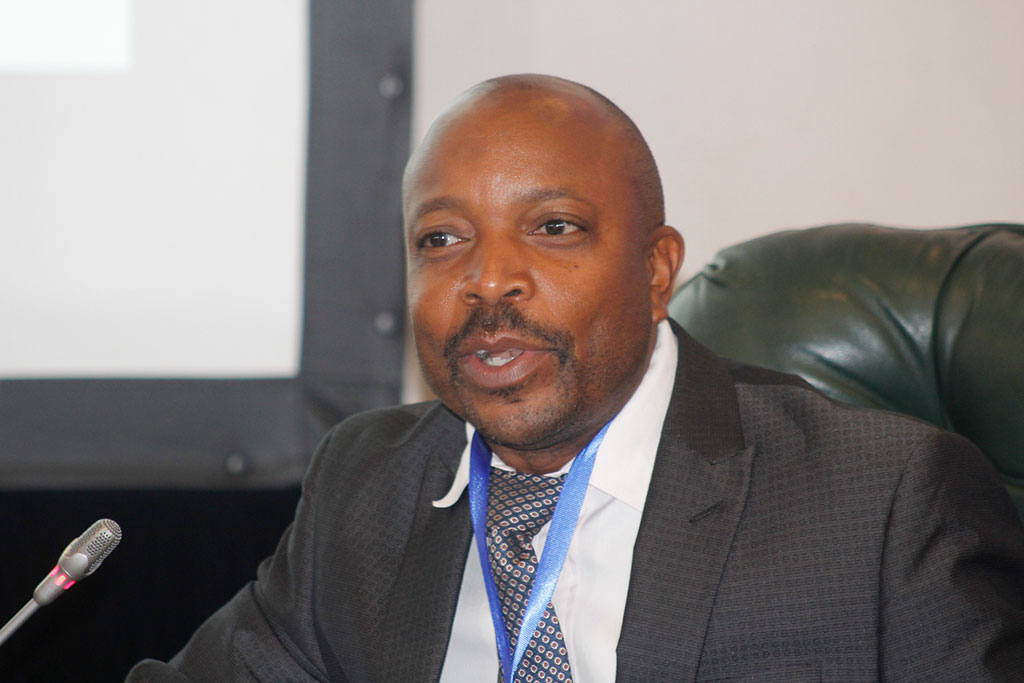By Byron Mutingwende
Various authorities and stakeholders were brought together at the Norton Mining Indaba to unravel the challenges hampering productivity among small-scale miners and proffer solutions to improve the performance of the sector.
In his welcome remarks, Privelage Moyo, the Chairman of the Norton Miners Association, said if properly managed, small-scale miners had the capacity to increase production of minerals and contribute to the growth of the economy.
“If production of minerals improve amongst artisanal and small-scale miners, there is potential to uplift Zimbabweans from poverty because the country is abundantly blessed with different types of minerals.
“The theme of this mining indaba is “unravelling the challenges hampering productivity in the mining industry.” All what needs to be done is to encourage all age groups to safeguard and protect our minerals, environment and culture. The challenges we have collectively in the mining industry have become a giant elephant in the room. Today, I am pleased that we have all the relevant stakeholders and authorities at this meeting and we would like to use this opportunity to share ideas on how to overcome challenges affecting small-scale miners,” Moyo said.
Temba Mliswa, the Member of the House of Assembly for Norton who is also the Chairman of the Parliamentary Portfolio Committee on Mines and Energy encouraged artisanal and small-scale miners to register their operations and sell their minerals through the Minerals Marketing Corporation of Zimbabwe (MMCZ and Fidelity Printers.
“As a legislator, I encourage everyone present here to have proper documentation so that all mining operations are done legally. This is the reason why I have brought all the relevant mining stakeholders to this indaba. I want mineral resources to be exploited legally and systematically to foster economic growth,” Mliswa said.
The legislator revealed that there was interest from the Chinese, Russian and United States investors to invest in Zimbabwe’s mining sector. He encouraged artisanal and small-scale miners to take the lead in mineral production so as to fully benefit from the country’s natural resources through organising themselves into syndicates like the Zimbabwe Miners’ Federation (ZMF) that would make it easy for them to access loans to buy equipment and pay workers in pursuit of boosting production.
Dishoni Limbikani, a Senior Analyst in the Financial Markets Division of the Reserve Bank of Zimbabwe (RBZ) said if gold production is increased, the country would earn foreign currency from the export of the mineral.
“More than 60% of Zimbabwe’s foreign currency earnings come from the export of minerals. The RBZ manages the sale and export of gold because it is the country’s reserve asset according to the Gold Trade Act. Fidelity Printers buys and sells gold and we encourage all miners to sell gold through them.
“The RBZ has a $150 million loan facility for both small and large-scale miners who sell gold through Fidelity Printers. Miners can access loans as working capital or to pay their employees and support other capital expenditures. The maximum interest rates for loans given for gold production is 10%,” Limbikani said.
He hailed artisanal and small-scale miners for working towards increasing gold production. In 2017, their gold delivery to Fidelity Printers increased to 53%. The Zimbabwe Republic Police gold Control Unit and the RBZ are encouraging miners to sell gold through the formal channels and minimising leakages of the precious mineral through the informal markets.
Masimba Chandavengerwa, the MMCZ Acting General Manager, said his organisation is responsible for marketing and selling of all minerals except gold and silver.
“The MMCZ plays a number of functions. It researches and develops mineral markets; conducts own trading in minerals; facilitates local beneficiation and value addition of minerals; and provides advisory services on mineral marketing issues.
“We also design mechanisms for effective accounting of mineral resources and advise the minister of mines on matters connected with the marketing of minerals,” he said.
It helps miners with contract negotiations, export documentation preparation, mineral evaluation and advisory services on mineral sorting or grading and marketing.
Allan Sixpence, the Operations Manager of Credsure Insurance Company says his company instils risk management practices in the miners and their operations.
“We insure residual risk. This results in cost savings. The market perceives the artisanal and small-scale miners to be insurable because they mostly operate informally, lack permits and do not adhere to environmental and safety requirements. As Credsure with 53 years experience in insurance since 1965, we recognise the ASM contribution to economic growth and GDP so they must be insured,” Sixpence said.
There are risks associated with physical loss or damage of the mining machinery, equipment and plant. The major losses emanate from physical accidents and operational errors.
They also face personal accident risks associated with physical loss or damage to employees resulting in death and permanent disability causing disruption of operations.
Victor Rupende, the ZMF Secretary-General said there was need to acquaint ASM about the status of land from which they operate.
“We also urge Fidelity Printers to scrap collateral required from ASM for them to access loans. Our documentation should act as collateral. It is also important to note that our members lack skills in terms of proper and environmentally-friendly mining and safety and health,” he said.
Chief Ngezi Mupamombe encouraged the ministry of mines to regularise the operations of ASM.
Sylvester Mushaike, the Secretary-General of the Mine Workers’ Union of Zimbabwe encouraged mine employers to improve the conditions of work for their employees.
“We are worried about the rampant wage theft in the mines. Employers should realise that for production to increase, the workers should be motivated. It’s regrettable that the minimum wage for the mining sector is $254. Despite the fact that the wages are very low, Hwange Colliery Mine workers have gone for four years without pay. Shabanie Mine has also dumped 5000 workers,” Mupamombe said.
Daw Zvobgo, the Chief Executive Officer of Chegutu Rural District Council said formalisation would ensure that ASM would be able to pay their rates. In turn the council would improve infrastructure like roads that would be beneficial for miners to transport mineral ore to the mills.






